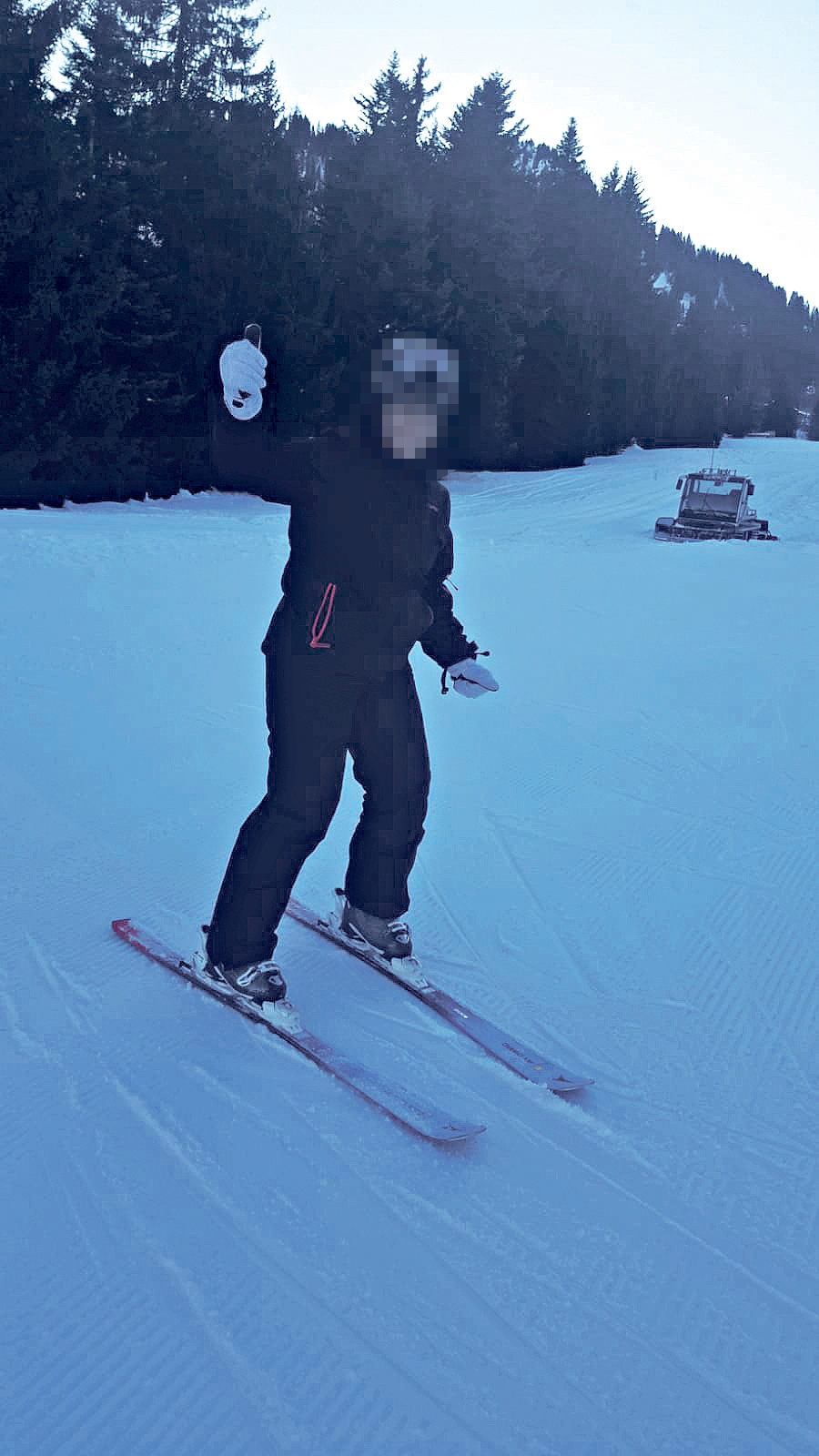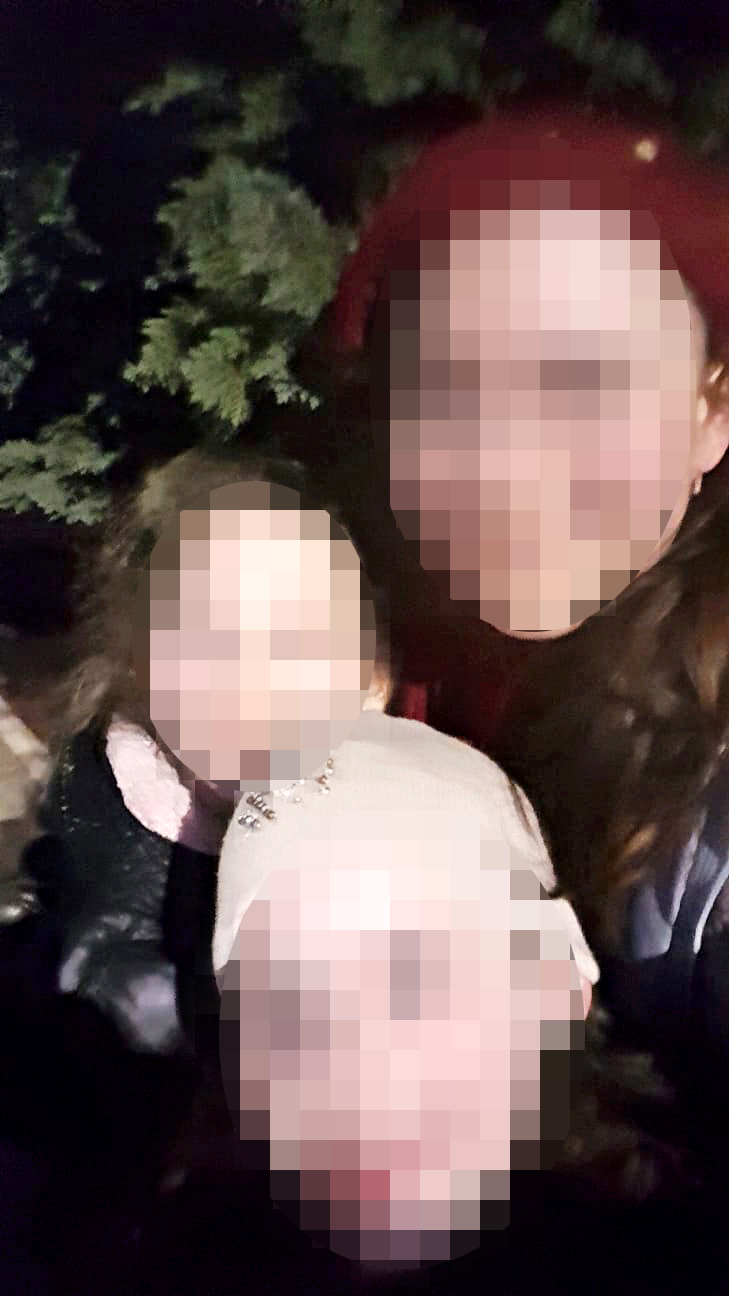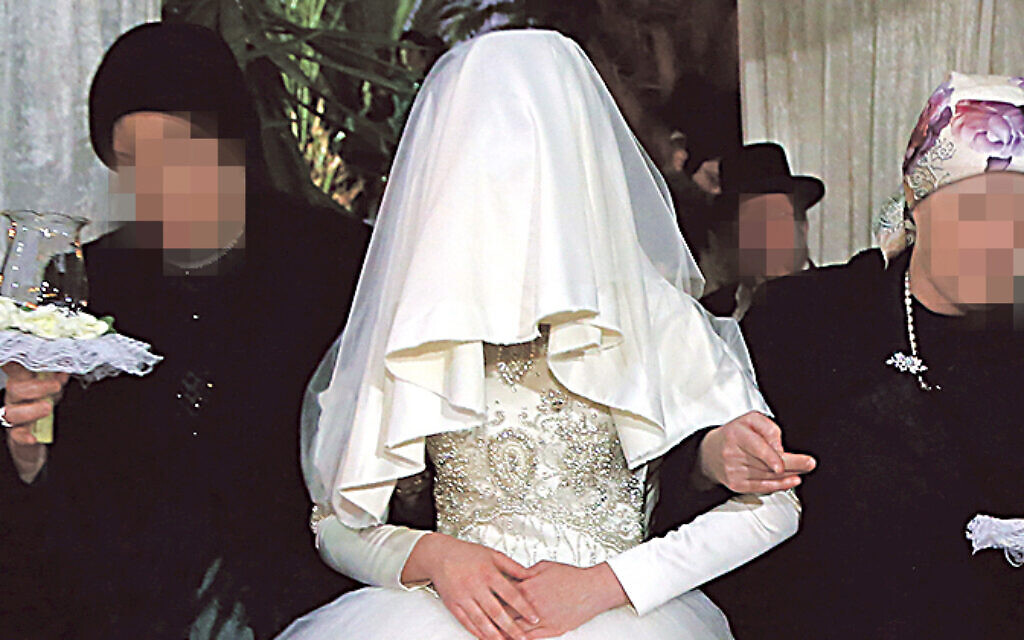Forced marriage: ‘It took 14 years to realise I wanted to live before I died’
In the week that dozens of testimonies were presented to the government, one victim reveals in her own words how she found the courage to break free.
Even before I was engaged, I knew I didn’t want to marry the kind of person my parents wanted me to marry. I didn’t want to live in Stamford Hill, I didn’t want to marry someone Chasidic. It didn’t feel right for my soul.
But I also knew if I didn’t want to live like my community, then at 19 I would be out on the street, with no family and no one to support me. I felt there was no alternative.
It took me 14 years to realise that actually there was and that I had to live before I died.
Get The Jewish News Daily Edition by email and never miss our top stories Free Sign Up
I met my husband once before we got engaged and we spoke once on the phone. I knew I didn’t want to go ahead and I cried so much during the engagement. My parents said it was the right thing for me. They had the rabbi’s blessing and, in Stamford Hill, the stigma of a broken engagement is nearly the same as being divorced.
Even before I was engaged, I knew I didn’t want to marry the kind of person my parents wanted me to marry. I didn’t want to live in Stamford Hill, I didn’t want to marry someone Chasidic. It didn’t feel right for my soul.
I was very sad on my wedding day… and wedding night. People may say they have been prepared for it intellectually, but my body responded as if I were being raped. It was a choked feeling. I felt forced to have sex and didn’t know how to express the fact my body was screaming ‘no’.
In the community, there’s an understanding that you have to do this with your husband. But you can’t work on a relationship if there is no physical intimacy and you are feeling raped every time you have sex. By the end, we didn’t have any physical contact and he wouldn’t even hug me.

For two-and-a-half years before the divorce, I refused to go to the mikveh. He wouldn’t touch me if I hadn’t been and it would have killed me spiritually to have sex with him.
About three months after we married, I came home and he wasn’t there. I was living in an apartment and the others in the building could hear things. But I couldn’t control myself. I started crying so loudly and so deeply; it was almost primal, as if my soul was trapped and all I could do was let out this horrendous sound from within. It was a cry of feeling so trapped.
The things that get glorified in the shidduch system are your lineage, whether your parents are respected and have money. I was looked at as second or third class and my parents didn’t have money. Neither did my ex-husband, so that was why the matchmaker decided we were right. But we were never compatible. He was married to Stamford Hill, never to me.
I was very sad on my wedding day… and wedding night. People may say they have been prepared for it intellectually, but my body responded as if I were being raped
The community’s goal is to get a man and woman engaged and get them married. The purpose is not whether there is a likelihood of them connecting and making something of it. No one cares about compatibility, that real connection, that real desire. That is not part of the equation.
READ MORE:
- Document on prevalence of forced Charedi marriages handed to government
- OPINION: Social pressures hinder free and full consent
For 14 years, I desperately tried not to break apart the marriage because we are taught how dreadful that is. Then you start having children and it becomes about not breaking apart a family. By 20, I was a mother. By 30, a mother of four. I felt I had to keep having children until the end of my life and it was killing me.
When I finally told him: “I can’t live with you anymore. My sanity and well-being are in danger. I cannot survive this,” he told me my request to end the marriage was not valid without someone, such as a rabbi, deciding it was over.

Then for six months, he refused to leave the house. If I said I was going out, he would follow me. It was so harmful to me and the children.
My son blames me. He has been conditioned so strongly that he believes I am the bad one for taking him away from his home in Stamford Hill. He is a teenager, yet at the national curriculum level of a seven-year-old. He has been taught that God loves Chasidim more than other Jews and that he is fine to live off benefits and charities. I want more for my kids.
The community is trying to take custody of my children; they have hired and paid for a QC to represent my husband and they see the situation as an attack on the community. I’ve been cut off by friends and am frightened because I don’t know what the consequences are going to be. People say I’m crazy, that I’ve had a nervous breakdown. They don’t believe you can be normal and leave the community.
For 14 years, I desperately tried not to break apart the marriage because we are taught how dreadful that is. Then you start having children and it becomes about not breaking apart a family
I wish someone could have told my younger self that when you do leave, you will be lost, your family will not support you, your friends will reject you and you will feel really isolated, but also that you can make a choice to live another life. I chose not to stay in the cage but to fly free.”
‘It was marital rape for me’
Esther Davis, 42, closed the doors on her strictly-Orthodox life when her 17-year marriage ended.
“I have always considered my marriage as a forced one,” she says. “I was proposed to on the fourth date, with our parents in the other room, waiting to celebrate.”
She was married aged 19 but says about her wedding night: “It is marital rape to me. I was sobbing my heart out telling him to stop because I was in so much pain, but he just continued regardless because that was what was expected.”
Esther says an older woman from the community phoned her the next morning. “She told me: ‘You’ll get used to it. Remember to never say no to him or he will find another woman and it’ll be your fault.’”
By the time Esther was 25, she had three children and said she didn’t want any more.
Six years ago, she finally left her marriage, but faced heavy opposition from her community and became embroiled in a bitter custody battle.
“Even though I’ve lost everything, the freedom I now have is worth it.”

Thank you for helping to make Jewish News the leading source of news and opinion for the UK Jewish community. Today we're asking for your invaluable help to continue putting our community first in everything we do.
For as little as £5 a month you can help sustain the vital work we do in celebrating and standing up for Jewish life in Britain.
Jewish News holds our community together and keeps us connected. Like a synagogue, it’s where people turn to feel part of something bigger. It also proudly shows the rest of Britain the vibrancy and rich culture of modern Jewish life.
You can make a quick and easy one-off or monthly contribution of £5, £10, £20 or any other sum you’re comfortable with.
100% of your donation will help us continue celebrating our community, in all its dynamic diversity...
Engaging
Being a community platform means so much more than producing a newspaper and website. One of our proudest roles is media partnering with our invaluable charities to amplify the outstanding work they do to help us all.
Celebrating
There’s no shortage of oys in the world but Jewish News takes every opportunity to celebrate the joys too, through projects like Night of Heroes, 40 Under 40 and other compelling countdowns that make the community kvell with pride.
Pioneering
In the first collaboration between media outlets from different faiths, Jewish News worked with British Muslim TV and Church Times to produce a list of young activists leading the way on interfaith understanding.
Campaigning
Royal Mail issued a stamp honouring Holocaust hero Sir Nicholas Winton after a Jewish News campaign attracted more than 100,000 backers. Jewish Newsalso produces special editions of the paper highlighting pressing issues including mental health and Holocaust remembrance.
Easy access
In an age when news is readily accessible, Jewish News provides high-quality content free online and offline, removing any financial barriers to connecting people.
Voice of our community to wider society
The Jewish News team regularly appears on TV, radio and on the pages of the national press to comment on stories about the Jewish community. Easy access to the paper on the streets of London also means Jewish News provides an invaluable window into the community for the country at large.
We hope you agree all this is worth preserving.
-
By Brigit Grant
-
By Laurent Vaughan - Senior Associate (Bishop & Sewell Solicitors)
-
By Laurent Vaughan - Senior Associate (Bishop & Sewell Solicitors)
-
By Laurent Vaughan - Senior Associate (Bishop & Sewell Solicitors)
-
By Laurent Vaughan - Senior Associate (Bishop & Sewell Solicitors)






















